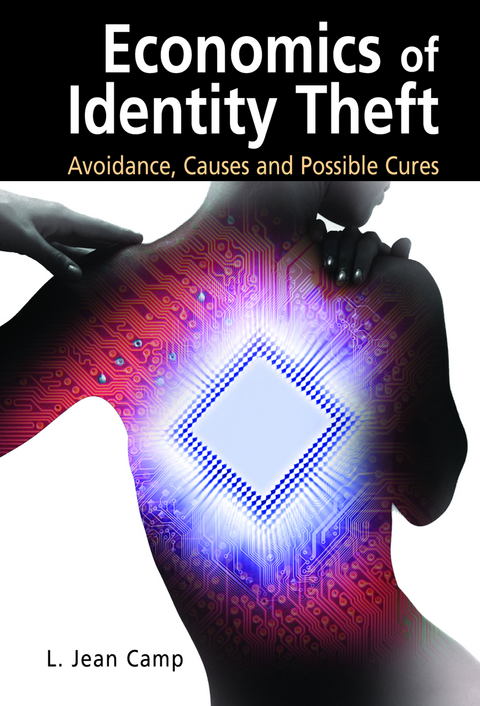
Economics of Identity Theft
Springer-Verlag New York Inc.
978-0-387-34589-5 (ISBN)
Anyone who has ever bought a car, rented an apartment, had a job or conversation that they would rather not see in their employee review may find this book of interest. There is a collision occurring in identity management. Identity technologies are problematic, and many see light at the end of the identity theft tunnel. Yet the innovation is driven by individual tendencies to seek convenience and business imperatives to minimize risk with maximized profit. The light is an oncoming identity train wreck of maximum individual exposure, social risk and minimal privacy. The primary debate over identity technologies is happening on the issue of centralization. RealID is effectively a centralized standard with a slightly distributed back-end (e.g., fifty servers). RealID is a national ID card. Many mechanisms for federated identities, such as OpenID or the Liberty Alliance, imagine a network of identifiers shared on an as-needed or ad-hoc process. These systems accept the limits of human information processing, and thus use models that work on paper. Using models that work on paper results in systematic risk of identity theft in this information economy. There are alternatives to erosions of privacy and increasing fraud. There is an ideal where individuals have multiple devices, including computers, smart cards, and cell phones. Smart cards are credit card devices that are cryptographically secure. This may be shared and misused, or secure and privacy enhancing. Yet such a system requires coordinated investment.
Identity in Economics, and in Context.- Modern Technological and Traditional Social Identities.- Identity Theft.- Who Owns You?.- Defeating the Greatest Masquerade.- Secrecy, Privacy, Identity.- Security and Privacy as Market Failures.- Trusting Code and Trusting Hardware.- Technologies of Identity.- Anonymous Identifiers.- Digital Signatures.- Strengths and Weaknesses of Biometrics.- Reputation.- Scenario I: Your Credentials Please.- Scenario II: Universal National Identifier.- Scenario III: Sets of attributes.- Scenario IV: Ubiquitous Identity Theft.- Closing.
From the reviews:
“This book is primarily concerned with the interplay between identity management technologies and their associated economic impact. … Overall, this book provides an interesting oversight of the economics of privacy and an overview of a range of identity management technologies in an economic context. … It is certainly worthy of perusal, provided that its significant US bias and inconsistency in what is actually meant by ‘identity theft’ are recognised from the outset.” (Stefan Fafinski, Journal of Information, Communication & Ethics in Society, Vol. 7 (4), 2009)
| Zusatzinfo | XV, 184 p. |
|---|---|
| Verlagsort | New York, NY |
| Sprache | englisch |
| Maße | 155 x 235 mm |
| Themenwelt | Informatik ► Theorie / Studium ► Kryptologie |
| Informatik ► Theorie / Studium ► Künstliche Intelligenz / Robotik | |
| Recht / Steuern ► Strafrecht ► Kriminologie | |
| Wirtschaft | |
| ISBN-10 | 0-387-34589-2 / 0387345892 |
| ISBN-13 | 978-0-387-34589-5 / 9780387345895 |
| Zustand | Neuware |
| Haben Sie eine Frage zum Produkt? |
aus dem Bereich


